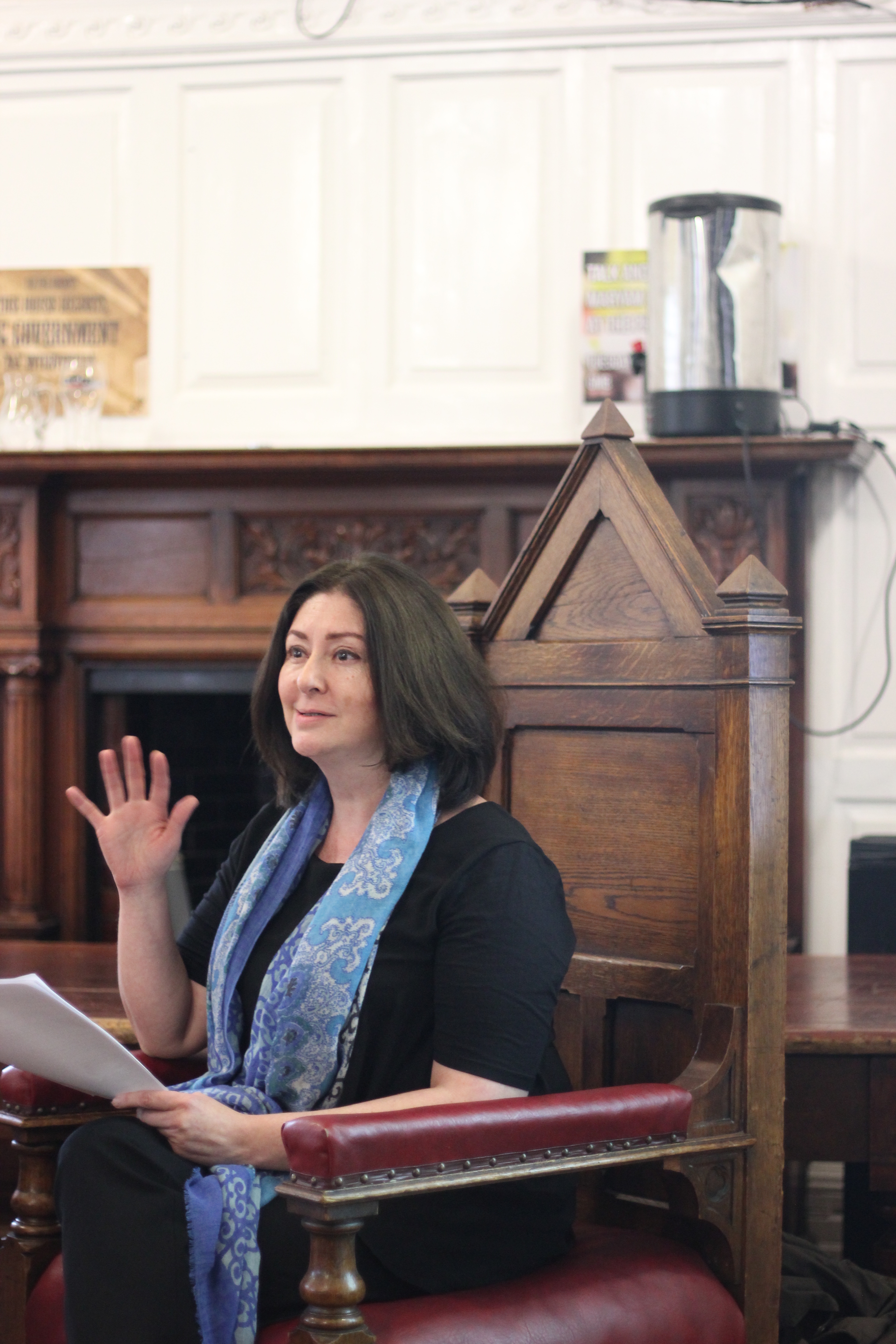
The renowned secularist, who was born in Tehran but fled Iran following the 1979 Revolution, spoke at length about her belief in complete freedom of expression. “The days when unconditional freedom of expression was seen as a cornerstone of all rights are long gone. Instead, self- censorship and censorship are promoted as intrinsically good. It’s no longer a defense of unconditional free expression that is progressive but a defense of censorship”.
When challenged about this stance by Phil president Ludivine Rebet in the Question and Answer session that followed, Namazie further backed up her view. “I don’t think there should be any limits to free expression. I think, you know, inciting hatred – the religious do that all the time against people like myself so would you say the Koran should be banned? We have to be able to allow people to say what they want, even if we don’t agree with it. Especially if we don’t agree with it.” She proceeded, “bad ideas should be challenged in public with better ideas and the only way to do that is if people are free to speak .You can’t stop bigotry by censorship, that’s not how it works.”
The leader of The Council of Ex-Muslims of Britain also drew attention to the many dissenters within Islam. With provocative anti-Islam images shown on a projector to the speaker’s left, she referred to the horrific cases of Raif Badawi, Souad al-Shammari and Fatma Naoot. “Dissenters are prosecuted for blasphemy, apostasy, enmity against god. “ Meanwhile, in Western countries, Namazie remarked that critics of Islam like herself face “charges of Islamophobia and charges of offence.” She continued, “the culture of offence absurdly implies that civility and manners are all that are needed to stop abductions and slaughter of generations from Nigeria to Iran and Algeria”.
Namazie also spoke about the privileged position of religion throughout the ages, drawing comparisons between the access to universities of those defending religion to those criticizing Islam, calling it a “disturbing trend”.
Namazie’s appearance at the Phil comes following the controversy surrounding her cancelled visit to the Society for International Affairs (SOFIA) in March, which she referenced at the beginning of her talk. “I’d really like to thank the Philosophical Society for giving me the chance to come and say what I wanted to say initially.” Ms. Namazie attributed the cancellation to her refusing “last minute restrictions on my talk”. She also expressed her delight that the University of Warwick had recently reversed a ban against her talking to students there.
Photo by Huda Awan






